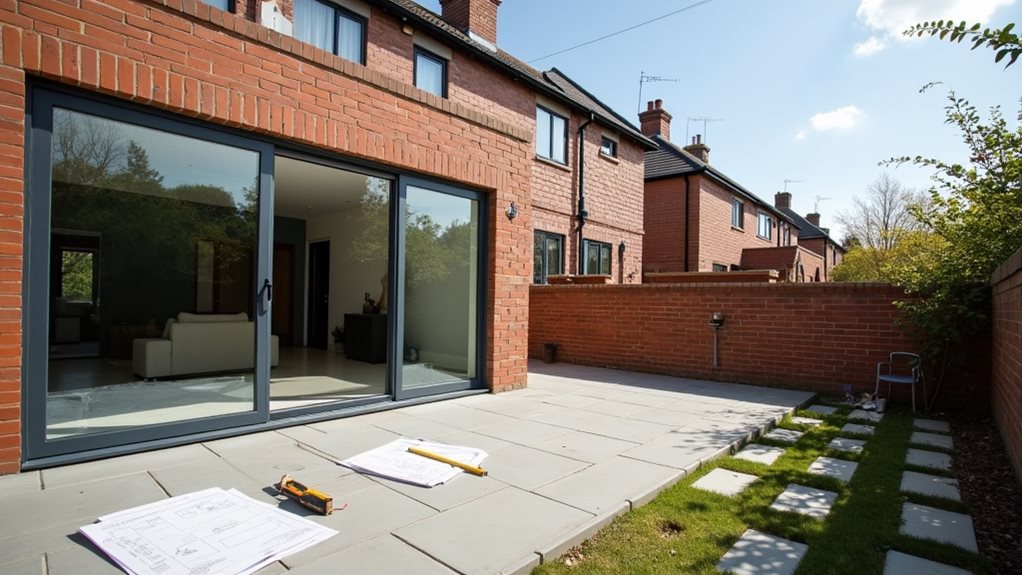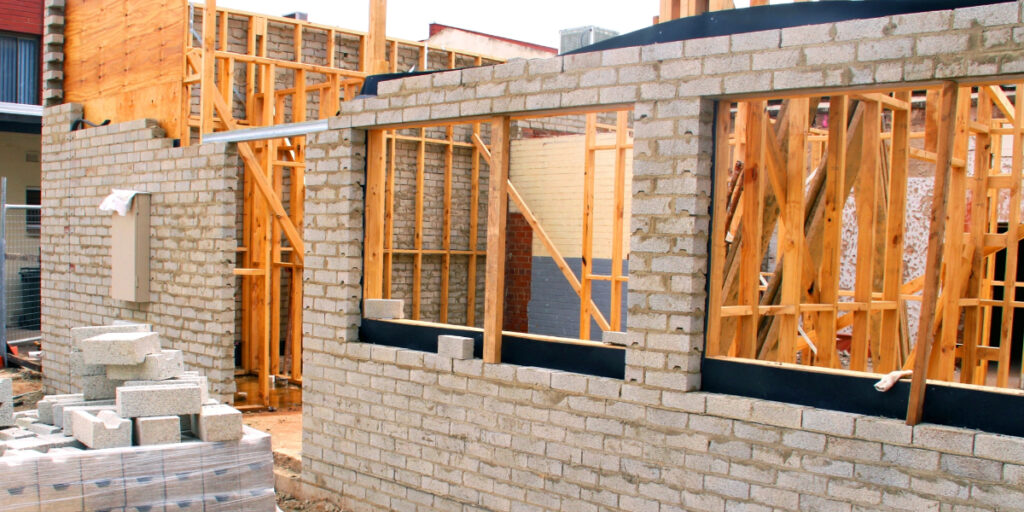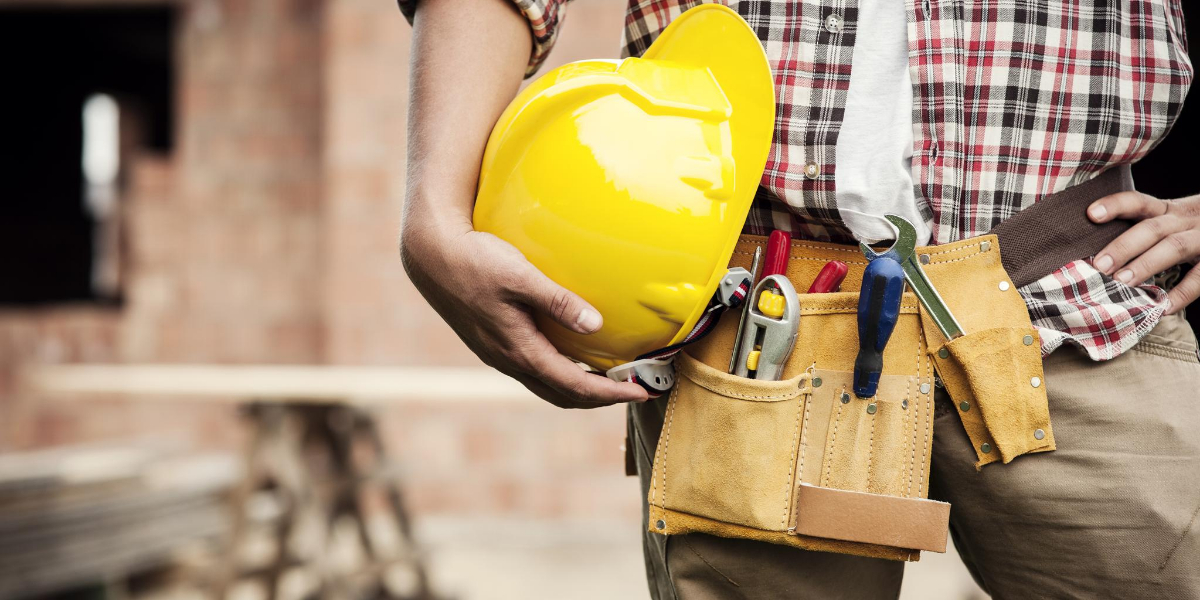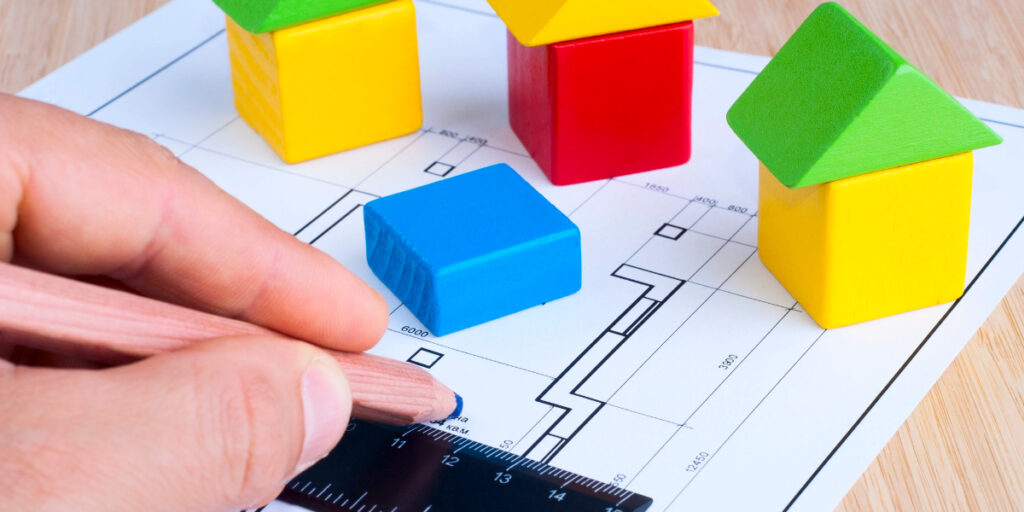Phone:
(701)814-6992
Physical address:
6296 Donnelly Plaza
Ratkeville, Bahamas.

Learn about the average costs of home extensions in Manchester and discover how various factors can influence your budget. What might surprise you?
In Manchester, you can expect the average cost of home extensions to range between £2,500 and £3,000 per square meter. This pricing can vary based on several factors, including the choice of materials, site conditions, and the complexity of the design. For example, single-storey extensions can cost from £1,200 to £2,000 per square meter, while double-storey ones often exceed £1,350 per square meter. Remember to also account for professional fees, which typically add 8% to 12% to your budget. Understanding these costs is essential, and as you explore further, more insights will become clear.

Home extensions in Manchester can greatly enhance your living space and increase your property’s value. When you consider a home renovation, think about the myriad opportunities for transformation.
Whether you’re dreaming of a cozy bedroom retreat or a spacious kitchen, each extension can markedly improve your lifestyle, allowing you to enjoy the comforts of home to their fullest. Additionally, working with local builders who understand the unique challenges of the North West can greatly streamline your project.
Understanding the regulations surrounding extensions is vital in Manchester. Many homeowners may not realize that you can undertake certain projects without needing planning permission, such as single-storey extensions up to six metres. This means you can expand your space with less hassle. However, staying compliant with local building regulations is a must; it not only affects your home’s safety but also its market appeal. Additionally, being aware of the average extension costs in Manchester ensures you can budget properly and avoid overspending.
While aligning improvements with your personal style is important, it’s equally essential to understand how such changes influence property value. Selecting suitable materials and designs that blend with your existing structure shows potential buyers you cared about quality and aesthetics.
In the end, a well-planned extension not only creates the living space you desire but also builds a sense of belonging, making your house truly feel like home.
When it comes to extension costs, your choices can make a big difference.
The type of materials you pick, for example, can either enhance your design or stretch your budget. Additionally, the overall cost can range between £2500 and £3000 per square meter, depending on the type of extension you choose.
Plus, how you install these elements plays a vital role, as different methods can add to labor costs and overall complexity.
Several factors influence the costs associated with hair extension installation methods. When it comes to your new look, the installation challenges can greatly impact your final price.
For instance, if you live in a location with limited access or problematic ground conditions, expect to pay more. The specific construction techniques required for your area can affect the overall budget, especially if your site is uneven or needs additional support.
Additionally, the choice of materials matters—a high-end look often comes with a higher price tag. Premium materials like natural stones or custom doors can considerably increase costs, so weigh your options carefully.
Also, think about the complexity of your desired style. More intricate designs, particularly those that require structural adjustments, can escalate expenses quickly.
Don’t forget about professional fees, like architectural consultations and planning permissions, which are also part of the equation.
Ultimately, finding the right balance between quality and budget will guarantee that your new extensions not only look stunning but also fit into your lifestyle seamlessly.

When you’re considering an extension, understanding the pricing for different types can save you time and money.
Front, rear, double-storey, and bedroom extensions all come with their own unique price ranges, which can vary greatly based on materials and complexity.
Let’s break down what to expect for each type, so you can make an informed decision that suits your budget and needs.
Home extensions come in various types, each with its own pricing structure and design possibilities. Understanding the different extension types can help you make an informed choice that fits your vision and budget.
Each extension type offers unique design options, so you can customize your space to suit your lifestyle.
Whether you’re looking to create a cozy nook or a spacious family area, there’s an extension perfect for you. Embrace the possibilities, and soon, you can turn your house into a home that truly meets your needs and reflects your personality.
Understanding the various types of home extensions helps you make an informed decision about which fits your needs and budget.
When exploring price trends in Manchester, it’s crucial to see how costs vary across different types of extensions. For example, a single-storey extension typically ranges from £1,200 to £2,000 per square meter. If you’re eyeing high-end finishes, you could be looking at £1,750 to £3,000 per square meter, leading to a total cost of £45,000 to £75,000 for a 30m² space.
On the other hand, double-storey extensions generally sit between £1,350 and £2,000 per square meter, with the total cost often soaring to around £80,000, especially when you factor in quality fittings.
Keep in mind that regional variations impact the cost breakdown, particularly in areas like Greater Manchester, where prices fluctuate based on location.
Architect fees can also add about 8% to 12% of your total costs. Therefore, understanding these factors can empower you, ensuring you choose the perfect extension that feels right for your home and your wallet.
Budgeting for a home extension involves careful planning and a clear understanding of potential costs. By implementing smart budgeting strategies, you can guarantee your project stays on track financially. Start with a detailed cost breakdown to identify where your money will go.
Here are three key factors to take into account:
Think about using cost calculators to gather more accurate estimates, and remember to factor in professional fees, which can take up 8-12% of your total budget.
Working with experienced builders and architects will also help you manage costs effectively.
Most importantly, plan for the long term. By anticipating future needs, you can avoid unexpected expenses down the road, guaranteeing your home extension not only meets your current desires but also grows with your lifestyle.

When planning your extension, don’t overlook the additional costs that can greatly impact your overall budget. Beyond the initial quotes you’ve received, you might find yourself needing to allocate funds for additional features.
If you’re dreaming of a new kitchen, be prepared to invest between £3,500 and £10,000. Want to add a bathroom? That’ll set you back between £2,000 and £6,000, while a utility room may cost anywhere from £3,500 to £7,000. Plus, each room needs the right finishes and fixtures, which can add up quickly.
Construction materials play a crucial role, too. Prices can vary widely—from £1,200 to £2,000 per square meter for a single-story extension, considerably more for double stories.
If you’re going for a complex design, expect to shell out £150,000 to £180,000 for larger spaces. Keep in mind that fluctuations in material prices can affect your final costs as well.
Incorporating these potential expenses into your budget now will help you avoid surprises later on, ensuring your dream extension turns into a beautiful reality without the financial strain.
Maneuvering through planning permissions can seem intimidating, but you can simplify the process by familiarizing yourself with the key regulations that may affect your extension. Understanding permitted development is vital. For example, extensions up to six metres—or eight metres if detached—often won’t require planning permission. However, if your property is a flat, maisonette, or a listed building, you’ll face restrictions.
Here are a few important things to keep in mind:
If your project goes beyond these permitted development rights, you’ll need to submit planning applications.
Keep in mind that local councils usually take up to eight weeks to review your application, notify neighbours, and publicly display the plans.
It’s essential to understand that rejected applications can be resubmitted within a year without extra fees. By knowing these details, you’ll navigate the planning process more smoothly, ensuring that your dream extension becomes a reality.

To make your extension more affordable, consider implementing a few smart strategies that can greatly cut costs. Start by simplifying your design; avoid complex shapes and opt for a simpler roof structure. This not only saves money but can also create a more cohesive look with your existing home.
Incorporating cost-saving techniques, like minimizing the number of windows and doors or using standard materials, can make a real difference.
Next, optimize your building techniques. Look into off-site manufacturing, which often reduces labor costs, or consider using reclaimed and budget-friendly materials to add character without breaking the bank.
Locally sourced materials can also cut down on transportation expenses.
Finally, effective project management is key. Plan your project carefully to avoid delays that could increase costs. Negotiate fixed prices with contractors to guarantee your budget stays on track, and always leave room for contingencies in case of unexpected expenses.
Choosing the right hair extensions involves more than just picking a style; it requires a professional assessment to assure the best outcome.
You want to make certain that your extensions look natural and enhance your overall appearance. A thorough hair assessment will help you determine extension suitability by evaluating factors such as hair condition, texture, and color matching.
Here are three reasons why a professional assessment is key:

Manchester’s property market is experiencing a surge in home extensions, with homeowners increasingly opting to expand their living spaces rather than move. This trend is set to continue well into 2025, driven by several key factors.
With Manchester’s average house prices projected to reach approximately £294,000 by the end of 2025, representing a 4% annual increase, many residents are finding it more cost-effective to extend their current homes rather than purchase larger properties. This approach allows homeowners to increase their living space while simultaneously boosting their property’s value in a thriving market.
In 2025, homeowners are likely to benefit from government grants and incentives for incorporating eco-friendly materials and energy-efficient features into their extensions. This presents an excellent opportunity to future-proof homes while reducing long-term energy costs and enhancing market appeal.
Single-storey extensions remain a favorite among Manchester homeowners, offering versatile options for expanding kitchens, creating dining areas, or adding spacious family rooms. Two-storey extensions are also gaining popularity, providing significant additional space for bedrooms, home offices, or bathrooms.
While many extensions fall under “permitted development rights,” it’s crucial to consult with local planning authorities or professional advisors before proceeding. This ensures compliance with regulations and a smooth approval process.
With Manchester’s property market expected to outperform many other UK cities, home extensions offer an excellent investment opportunity. Areas like Ancoats and the Northern Quarter are particularly promising, with their high demand among young professionals.
As Manchester continues to grow and evolve, home extensions represent a smart way for homeowners to adapt their living spaces to changing needs while capitalizing on the city’s robust property market.
In summary, steering through extension costs in Manchester might feel overwhelming, but with the right preparation, it can be as rewarding as finding a pot of gold at the end of a rainbow. By understanding the various factors at play and planning your budget wisely, you can transform your home into a space that reflects your style and needs. Remember, investing in a professional assessment can save you both time and money in the long run—don’t underestimate its value!